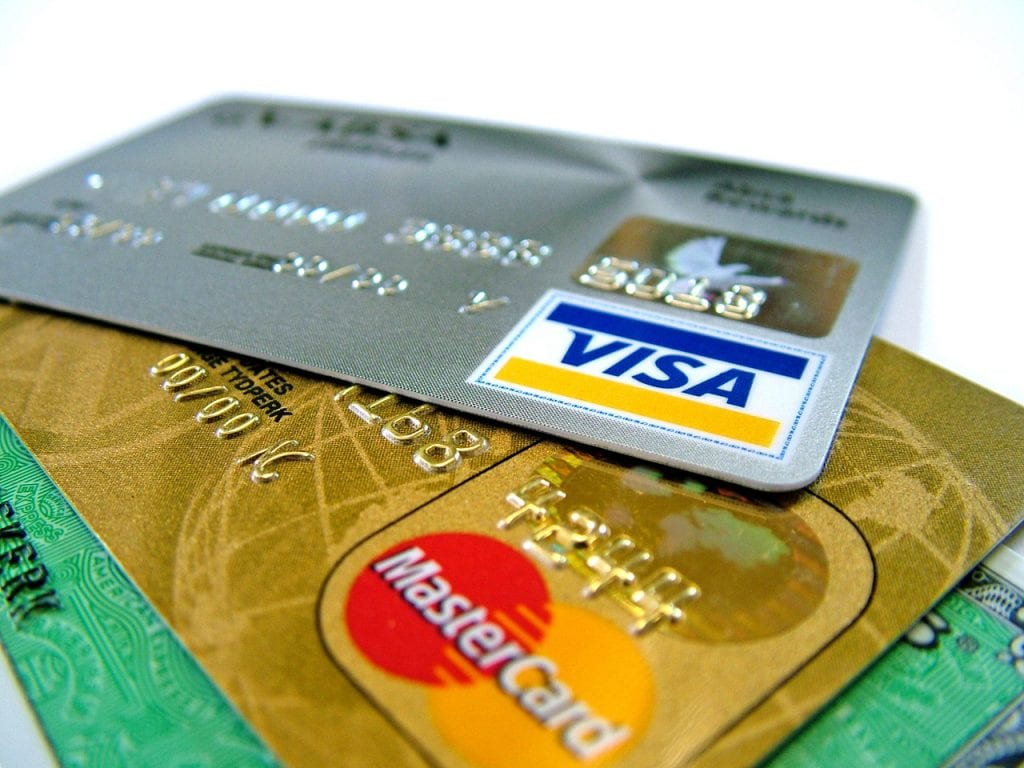Credit cards have been in the news quite a bit recently, the latest announcement being that retailers and service providers are no longer allowed to charge you extra if you choose to pay with plastic rather than cash. This will mean that the 2% or more surcharge added by tour operators and the village shop charging you 50p if the transaction is less than £10 has become illegal, and merchants can be fined by trading standards for doing so.

Card processing charges demanded by the merchant supplying the machine vary, and a great discount is offered to companies with large volume of transactions, in the same as they do with the goods that they buy, which is why you can go into any supermarket and pay for a packet of chewing gum with a credit card and no-one minds. For a small retailer, they will pay more for the gum in the first place, and if you pay by credit card, the 30-50p charge will cancel out any of their profit to the point that they may even make a loss
The effect of the facility to pass this cost on to the consumer is likely to be twofold, firstly it is likely to result in smaller retailers declining to accept cards for transactions under a certain threshold, or not taking them at all – one local plumbers’ merchant to us, simply put their machine away and asked all customers to pay cash, or open a trade account. Secondly, there may be an increase in prices so that after the card payment, the business owner still receives what they would have before. Although this sounds like a sneaky way for businesses to charge everybody more and make a greater profit margin (as cash users would be paying more too) it could simply be seen as another way that smaller businesses struggle to compete with the buying power of multinationals.
The right credit card can be a useful addition to your financial management armoury if used with care and in the right way, here are 3 top tips and 3 things to watch out for!
Good ways to use a credit card
 If you need to purchase something over £100, a credit card will give you protection if you have a problem and the retailer is un-cooperative in refunding your money. This is the case even if you pay it off the card the very next day, and can prove useful if your holiday company goes bust and is not ABTA regulated.
If you need to purchase something over £100, a credit card will give you protection if you have a problem and the retailer is un-cooperative in refunding your money. This is the case even if you pay it off the card the very next day, and can prove useful if your holiday company goes bust and is not ABTA regulated.- Choose a card that awards points to a loyalty scheme, or cash back. Use the card for everyday spending on groceries, petrol etc. and then pay it off in full each month. It is a good idea to set up a direct debit to clear the card in full, and you might want to move money out of your main account as you spend on the credit card, so that you have the money ready for the bill and don’t spend it twice.
- If you need to buy an expensive item of furniture, or have home improvements, or car repairs it can work out better to use a card that offers 0% on purchases for 12-18 months than get a bank loan or credit offered by the retailer. If you choose this method, you should take the total amount that you have borrowed (e.g. £3000) and divide it by the number of months that you have to repay before the promotional period ends (15months) and then set up a standing order for the required amount (£200). If you are lucky this card may also give you points towards your shopping or cash-back too. WARNING – if you still have a balance on the card when the 0% ends you can get stung with a hefty interest charge which will pretty much cancel out all your good work.
Bad habits with credit cards
 Not opening the statements and being aware of how much you owe. Most people have had a splurge on a credit card at some point, but avoiding opening the bill and paying what you owe can lead you into major problems and damage your credit history for years.
Not opening the statements and being aware of how much you owe. Most people have had a splurge on a credit card at some point, but avoiding opening the bill and paying what you owe can lead you into major problems and damage your credit history for years.- Buying stuff you don’t need and actually can’t afford. It can be very tempting to overspend when you’re not using real money, and it can prove difficult to keep to a budget. You may be better to put spending / treat / fun stuff money into a separate bank account with a debit card, so that you can tap away to your heart’s content with takeaway coffees and magazines, knowing that when the money runs out your card will be declined, and you will know to stop. Another way to do this would be with a pre-paid card – Mastercard do one, and so do Utility Warehouse, you load it with cash and can only spend what is there.
- Only paying the minimum balance on a credit card that is charging you interest can mean that it takes you years to clear your debt and you end up paying far more than you originally borrowed. If you can, try to transfer the balance to a 0% card (you may need to pay a one-off 1-3% fee) and then set up a direct debit to clear it in full before your deal ends. When you are only repaying the capital and not any interest you can pay the debt down much more quickly and feel that you are actually making progress.
Deals and rates change all the time, and you can find out about current 0% purchase or balance transfer deals on the Moneysavingexpert.com site, and if you wish they have an online tool to see which card you would most likely be accepted for. Like most things in the financial world, applying and being turned down, or applying to several providers in quick succession can damage your credit file and leave you struggling to obtain a mortgage or other finance when you most need it, so you are much better to choose right first time.
If you’d like a confidential chat about a plan to get your credit cards organised and a plan to repay your debt, you can get help from charities such as Step Change or CAP or ask your Financial Adviser to help.

You could also find one of our workshops or online courses useful; we offer a range of solutions, from things that you can do in the privacy of your own home (with email / telephone support) to one-to-one and small group sessions. Please click here to find out about how we can help.
